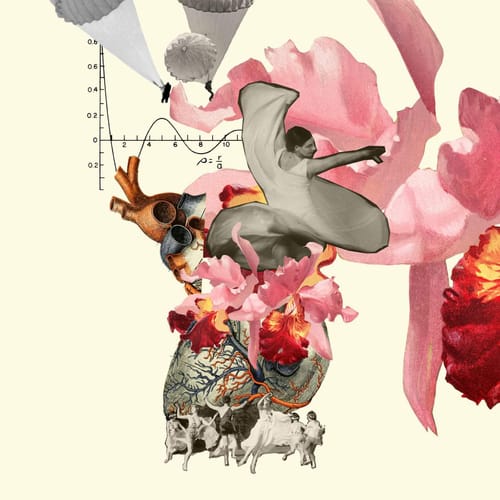Mental health has entered the big stage, and everyone is talking about it. Rightfully so, because we all have more or less issues with our mental health.
The connection between emotional health and mental health, unfortunately, remains less discussed because it is considered obvious. Most people assume that mental health is the basis for emotional health.
In other words, mental health leads to emotional health. This assumption stems from the century-old Western medical worldview that emotions result from brain activity related to mental activity.
As always, there is more than one way to look at anything, including emotions. If you reverse that causal chain, you'll have the statement, "Emotional health leads to mental health. In this scenario, emotions would be the source of our thoughts and mental activity.
If you start to research, you can find studies that seem to confirm either view. As you learn to think with your heart instead of solely with your brain, you'll begin to realize that things are not either or but both and more.
This would mean that thoughts and mind activity, reflected in brain activity, lead to emotions, and vice versa.
Rebekka Baumann has spent the last 30+ years facilitating emotional healing based on the assumption that emotions are the primary and core aspect of humans.
In her work, we are not mental beings, as the common phrase "mind over matter" encapsulates. We are emotion beings, or heart-beings. Our emotions and how we relate to them, which is a relationship with ourselves, shape what we think, what decisions we make, and how we live our lives.
If our emotions shape our lives, then as our relationship with our emotions matures, our lives should change. The definition of a mature relationship with our emotions, and thus ourselves, is that we are able to feel whatever is present in us without the need to censor, ignore, push away, transcend or do anything that helps us not to feel.
An interesting side effect of this growing maturation in our relationship with our emotions is that spiritual gifts appear without further dedicated practice. It is as if they have always been there but were inhibited by our emotional wounds.
In our current society, nearly everyone tries not to feel uncomfortable emotions. We do anything to not feel them and and do anything to experience pleasant emotions. Although different cultures have different value systems, in most, being dysfunctional, taking drugs or being depressed and succumbing to overwhelming emotions is seen as unhealthy and unappealing. Being functional, successful, and constantly feeling on top of the world is seen as healthy and highly desirable.
If we change our value system and say that unhealthy is to not feel whatever is going on in ourselves, then anything like being functional and successful falls into the unhealthy category if it prevents us from feeling the uncomfortable emotions hidden in the shadows of our soul.
Although it is the hardest thing you'll ever learn, cultivating this state of emotional maturity and gradually and systematically feeling all the emotions we had to disconnect from when we were too young and without emotional support is possible.
We are working on a course with Rebekka Baumann, one of the few experts basing her emotional healing approach on this worldview.
You can read more about this course and register on this page:


